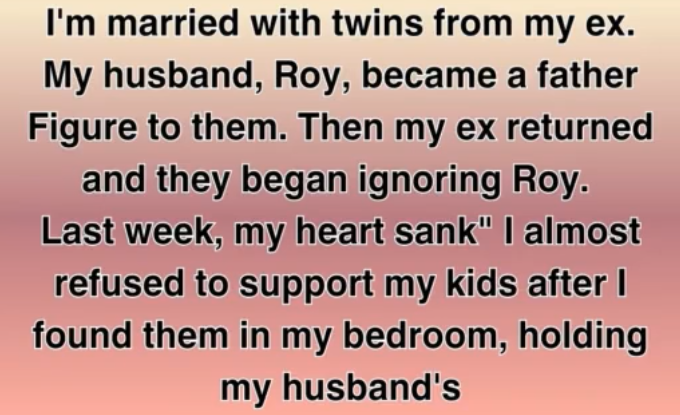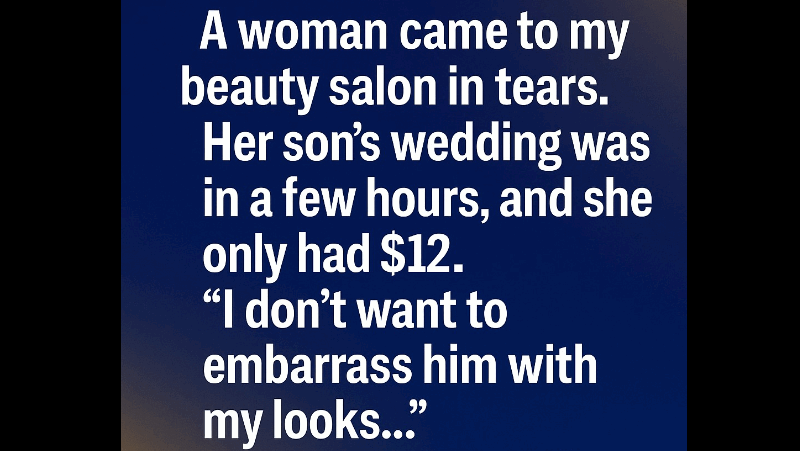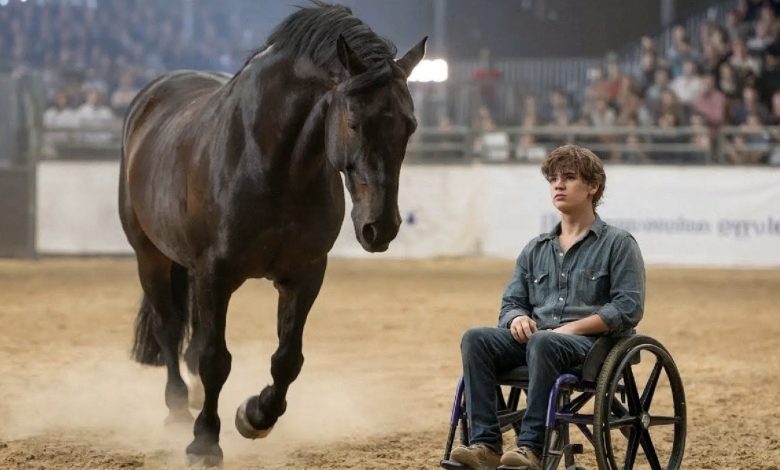I’m married with twins from a previous relationship. My husband, Roy, stepped into the role of father figure for them. Then their biological father reappeared, and the twins began to distance themselves from Roy.
One evening last week, my heart dropped—I nearly faltered in supporting my children after discovering them in my bedroom, gripping Roy’s shirt.
It was a Tuesday evening. I returned home late from work, grocery bags digging into my hands, anticipating the familiar: Roy’s gentle jazz playlist filling the air, one twin dozing on the couch, the other immersed in his Switch. Instead, silence greeted me. I found my boys, Sulaiman and Navid, both fifteen, seated cross-legged on our bedroom floor. Roy’s cherished blue Oxford shirt—the one he wore on our first anniversary—was held tightly between them.
They didn’t notice me at first. I stood frozen, my gaze shifting from their solemn faces to Roy’s empty side of the closet. When I spoke, my voice was softer than I meant. “What are you doing?”
Navid glanced up, eyes wide, like a startled animal. Sulaiman held the shirt closer, unmoving, and said, “We wanted to smell it one more time.”
Those words pierced me. Not only for their meaning but for everything left unsaid.
Roy had left three days prior. Not permanently—or so I believed. After another clash with the boys, he’d packed a small bag, said he needed a break, kissed my forehead, and promised to call. He hadn’t.
I’d urged him to stay patient, insisting it was a passing phase. But seeing the twins with his shirt, I began to question everything.
Roy entered our lives when the twins were seven. Their father, Bahram, had vanished when they were toddlers, leaving me to manage rent, daycare, and late-night shifts alone. Bahram was magnetic when we met—Persian, witty, with an intensity that made you feel singularly important, until you faded from his focus.
I never expected his return. But last autumn, he came back.
The boys found him online without my knowledge. They connected with him secretly, meeting at a burger spot near their school. Bahram arrived with smiles, apologies, AirPods, and phrases like “my kings” and “blood runs deep.”
I wanted to resent him, but I saw the yearning in the boys’ eyes, the way they softened in his presence. I allowed their visits. I even welcomed him to dinner once. That night fractured everything.
Roy had prepared a Persian-style stew, a gesture of goodwill, and Bahram dismissed it, saying it “wasn’t how their grandmother would’ve done it.”
That dinner ended with Roy driving away and me weeping in the laundry room. The boys remained silent. After that, something changed.
Roy used to take them fishing. Sunday pancakes were a tradition. He taught Navid how to knot a tie for his debate tournament and stayed up late with Sulaiman crafting a solar system model for a science project.
But when Bahram returned, Roy seemed to vanish from their world. The boys began skipping family dinners, rolling their eyes at Roy’s words, laughing behind closed doors with Bahram on speakerphone.
I tried to reach them, but teenage boys build walls—solid, unyielding ones. You can pound on them, but if they don’t let you in, you’re left shouting at stone.
I started questioning myself. Questioning Roy.
Then, last week, finding them with his shirt changed everything.
I sat beside them, moving carefully to preserve the moment. “Why that shirt?” I asked softly.
Sulaiman stayed quiet. Navid spoke up. “It smells like him. That cinnamon-vanilla cologne.”
“I got him that,” I said, a faint smile breaking through.
Navid blinked. “We thought he’d be back already.”
“He said he needed time,” I murmured.
A heavy pause followed. Then Sulaiman whispered something that nearly shattered me. “Do you think he’s gone forever? Because of us?”
That’s when I saw it—they weren’t angry. They were ashamed.
The next morning, I did something I hadn’t done in years—I called Bahram. I asked to meet at a cafe, just us. He agreed, likely thinking I was relenting.
I wasn’t.
I spoke clearly, calmly, but with resolve. I acknowledged his effort to reconnect after all these years, but what he was doing now—playing the hero while undermining the man who’d raised his sons—wasn’t love. It was ego.
He bristled, then smirked. “They reached out to me, not the other way around.”
I nodded. “They’re teenagers. They’re drawn to the unknown. You’re the new, shiny thing. But they don’t know your habits like I do.”
He laughed. “Still holding a grudge?”
“No,” I said. “But I expect you to stop turning them against Roy. Or I’ll end their contact with you.”
He threw a few insults. I didn’t waver.
I left the cafe and drove to Roy’s brother’s house, where Roy was staying in the guest room, I’d learned from his sister-in-law.
He looked weary, unshaven, still in the hoodie from the night he left.
He opened the door, bracing for bad news.
“I miss you,” I said. “And they do too, even if they’re too stubborn to say it.”
He stepped aside, letting me in, but stayed silent. So I continued.
“They were holding your shirt,” I said. “They’re scared they drove you away for good.”
Roy’s expression softened. “It’s not only about the boys, Samira. It’s about respect. I felt like an outsider in my own home.”
“I know,” I said. “But you’re not. And I need you to come back and show them that.”
That night, Roy returned. Not fully, not yet.
He stayed in the guest room. He didn’t speak to the boys for two days. But then I came downstairs one evening and saw him teaching Navid to patch a bike tire. The next morning, Sulaiman left a coffee for him on the counter.
Gradually, the tension eased.
The real shift came a week later.
Navid got caught vaping at school. I got the call and was furious. But when I got home, Roy had already handled it.
Not with anger, but with quiet disappointment.
He sat Navid down, had him clean the garage, and shared stories of his own mistakes at fifteen—stealing a comic book, lying to his mom. He wasn’t perfect, but he always showed up.
That’s when Navid broke. He apologized for everything, said he missed their Sunday pancakes and wanted them back.
Two days later, Sulaiman left Roy a note on his pillow. Five words: “Thanks for not giving up.”
It wasn’t cinematic. No grand music played. But in our home, it was everything.
Bahram didn’t fade quietly. He kept texting, even showed up at the house once, loud and theatrical. But Navid opened the door, looked him in the eye, and said, “Not today, Dad.” Then shut it.
We haven’t seen Bahram since.
Now, our home feels warmer. Not flawless, but authentic.
Sunday pancakes are back. Roy added blueberries to the batter last week and nearly set the kitchen on fire. The boys teased him relentlessly, but they ate every bite.
They still call him Roy, not Dad. But sometimes, when they think I’m not listening, I hear, “Hey, Roy, can you help with this?” or “Roy, can we hit the park?”
And that’s enough.
Here’s what I’ve come to understand:
Family isn’t about blood or titles. It’s about presence. Consistency. The people who stay, day after day, even when it’s tough.
And sometimes, even teenagers—with their eye-rolls and defiance—are simply searching for proof that love won’t walk away.
If someone in your life has stayed when they didn’t have to, let them know what they mean to you.
And if you’re that person—keep showing up. Even if it takes time, the love returns.
💛 If this story resonated with you, share it with someone who could use a reminder.
Like & follow for more stories that feel like home.




